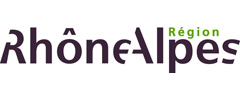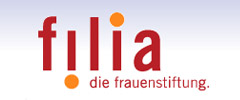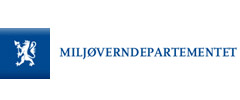Strengthening Chemical and product safety in the Western Balkans
Civil Society organisations from Western Balkans and EU, the UN team Serbia and representatives of government agencies of Albania, Serbia and FYR of Macedonia develop recommendations for regional cooperation and strengthening of chemicals safety
12.04.2013 |WECF

The conference was organised jointly by WECF International and UN team Serbia, together with non-governmental organisations from the Western Balkans, where the UN team brought the focus on the post-2015 development agenda in Serbia, and Women in Europe for a Common Future - WECF and NGO partners the focus on chemicals and product safety in the Western Balkans. The conference furthermore received support from the European Union and Germany.
Mrs. Leposava Sojic Assistant Minister of Energy Development and Environmental protection of Serbia, introduced the role of her ministry in surveillance and enforcement of chemical safety and that it was noticeable that the topic of environmental health has a particular interest for women.
Mrs. Borka Jeremic representing the United Nations team in Serbia presented the first conclusions from the national consultations on the Post-2015 development agenda in Serbia. The consultations have been gathering priorities and views from a broad range of stakeholders from different sectors on what the focus should be for Serbia of the follow-up to the Millennium Development Goals. Priorities ranged from improved local infrastructure to transparent governance, and also included gender equality and health and environment.
Mrs. Sascha Gabizon, Executive Director of WECF International, highlighted that the conference aims to share key evaluation results and best practices from the 2-year EU-funded project on “Chemicals Safety and Product Safety in the Western Balkan – civil society cooperation on EU acquis and values for consumer protection and corporate responsibility“, in which civil society organisations from Albania, FYR Macedonia and Serbia jointly with partners from Germany, France, Netherlands and Estonia campaigned for stronger chemicals safety of products, particularly to protect children’s health. The project also achieved to build capacity on the EU regulation regarding chemicals safety and promote incentives for Corporate Social Responsibility regarding chemical safety of products.
Mr. Petteri Mäkelä of the European Chemicals Agency ECHA based in Finland, presented the role of the European Chemicals Agency, regarding the implementation of the Chemicals regulation REACH, the Harmonized System for Classification of Labelling and the pesticide and biocide regulation. He also highlighted opportunities for capacity building support by European Union programs such as TAIEX and IPA for accession country and pre-accession country assistance.
Representatives of the Ministries of Health of Serbia and the Ministries of Environment of FYR of Macedonia and the Ministry of Economy, Energy and Trade of Albania, presented the state of surveillance, customs control and enforcement of chemicals safety in the different areas, and highlighted the differences and similarities between the countries, and with the European Union.
The conference participants prepared recommendations for strengthening safe chemical management, and highlighted the need for strengthened cross-border cooperation in the Western Balkan, identifying opportunities for harmonization and sharing knowledge and resources, to avoid negative impacts from different regulation regarding chemical safety surveillance and enforcement.
The conference participants also noted the lack of dedicated agencies tasked with regulating chemical safety in the Western Balkan, and identified as a priority to have a national regulatory body for chemical safety and to build and create continuity of institutional capacity on this issue, for example through a national chemical agency. A number of participants noted it was a loss that the Serbian Chemicals Agency has recently been discontinued especially in view of the accession to the European Union, and called for additional resources to address this gap and to ensure sufficient capacity in regulatory bodies to keep up with the EU legislation, particularly also in the area of Chemical Safety.
Mrs Alexandra Caterbow of WECF Germany presented an analysis of European Union’s Toys Safety Directive, where the area of chemical safety would need further strengthening and noted that legislation in the Balkan on toys might be stronger. She called on regulators from the Western Balkans to not ‘harmonize downwards’, but for the sake of children’s health, to maintain a highest level of chemical safety for children’s products such as toys.
Mrs Evis Qaja Director of the Albanian NGO “Women’s Movement for Integral Development” presented success of the 2 year campaign which focused on eliminating toxic substance in toys, with more than great attention from national television, radio and media, culminating in strengthened legislation in this area and an information website hosted by the ministry of energy.
Mrs Natasha Dokovska Director NGO “Journalists for Human Rights” in the FYR of Macedonia presented the successful campaign for toxic-free kindergartens in her country, which has resulted in an Memorandum of Understanding with the government for a program to assure of public kindergartens take measures for chemical safety.
The conference participants agreed that even with the best regulation, enforcement remains a challenge, and measures to support effective regulation need a strong civil society, to act as watchdogs and to call for continued transparency and good governance. Recommendations were developed for capacity building of civil society organisations, scientists and local authorities on chemical safety, and for support of consumer protection activities such as testing of chemicals in products, disseminating results in magazines, websites and TV and allocating earmarked funding for civil society activities.
For Serbia as an accession country, it was highlighted that the European REACH regulation, in article 123 requires government to inform the general public on the risks of chemicals, and that strategic cooperation with governmental and non-governmental partners from the EU and the Western Balkans would be beneficial, for example, in Albania a website on chemicals and toys is development by the Ministry of Economy, Energy and Trade.
Drs. C.H.J. van Oijen of the consultancy IVAM of the Free University of Amsterdam presented instruments to promote Corporate Social Responsibility performance and chemical safety management in the toys supply chain, and presented benefits of the European Eco-Label. Conference participants also concluded that industry should take measures to increase chemical safety in products, for example incentives and support can be given by authorities through an annual award for best practices by local business on chemical safety, a help-desk on chemical safety and green procurement.
The recommendations of the conference will be shared with decision-makers and partners in the Western Balkans and the EU so as to contribute to development of national and regional strategies on sustainable development, environmental health and safe chemicals management.

The conference was organised with support from the European Union, the German Government Federal Ministry of Environment, Nature Protection and Nuclear Safety, and UNDP Serbia.
Further information can be obtained from:
WECF, Bistra Mihailova bistra.mihaylova@wecf.eu
UNDP Serbia, Djordje Novakovic, djordje.novakovic@undp.org
Related News
Meet the Winners of the Gender Just Climate Solutions Award at COP24
On the 70th anniversary of the Universal Declaration of Human Rights, we awarded Gender Just Climate Solutions Winners at the climate negotiations in Katowice, Poland
11.12.2018
Invitation: Gender Just Climate Solutions Award 2018
10 December, COP24 Katowice
04.12.2018
Getting to the Future We Want
4-7 November, Brussels: European Environmental Bureau’s (EEB) Annual Conference
12.11.2018
GoodFood4All
WECF and partners all over Europe start GoodFood4All Campaign
06.11.2018
#Ruralwomen: join our Women2030 campaign!
15.10.2018







































